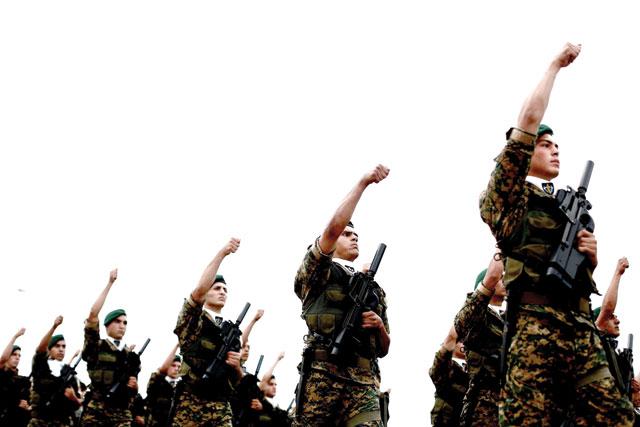- International News
- Sun-2020-09-06 | 03:39 pm

Turkey on Friday accused Greece of shunning dialogue and lying after Greek Prime Minister Kyriakos Mitsotakis said NATO-brokered talks to reduce tension in the eastern Mediterranean could only be held if Ankara stopped making "threats".
The two nations have been at loggerheads over energy resources in the region since Turkey deployed an exploration vessel escorted by warships last month.
"Greece showed once more that it's not in favour of dialogue," Turkish Foreign Minister Mevlut Cavusoglu told reporters in Ankara.
NATO chief Jens Stoltenberg on Thursday said Greek and Turkish leaders "agreed to enter into technical talks at NATO to establish mechanisms for military deconfliction to reduce the risk of incidents and accidents".
But Athens said it had not agreed to the technical talks, which in any case did not constitute dialogue with Turkey.
"Published information claiming Greece and Turkey have agreed to hold so-called 'technical talks' on de-escalating tensions in the eastern Mediterranean do not correspond to reality," Greece's foreign ministry said.
The Greek foreign ministry stressed that "de-escalation will only take place with the immediate withdrawal of all Turkish vessels from the Greek continental shelf".
"Let threats go away so that the contacts can begin," PM Mitsotakis said Friday as he met a visiting senior member of the Chinese Communist party.
'Reduce the risk'
Stoltenberg on Friday clarified that his effort was designed "to reduce the risk of incidents and accidents in the eastern Mediterranean," not address the root of Turkey's maritime claims against Greece.
"What NATO is doing, what I am trying to do, is not to address the underlying problem, but to deconflict and to try to develop and enhance mechanisms for deconfliction," or avoiding the massed military forces stumbling into an accidental battle, he told reporters in Brussels.
Such measures are needed "as long as we have so many ships in the eastern Mediterranean," Stoltenberg added.
"No agreement has been reached yet, but the talks have started,” the NATO chief said.
Wading into the dispute on Friday, Cyprus president Nicos Anastasiades denounced Turkey’s "aggressiveness” which he said masked "an intention to control the whole area”.
‘Extremely volatile’
"So we are experiencing a growing tension, and the situation that evolves is extremely volatile and worrisome,” Anastasiades told AFP in an interview.
He urged Turkey to agree to either take the matter to the International Court of Justice in The Hague, or to international arbitration.
In Ankara, Cavusoglu said Greece did in fact agree to the NATO proposal when it was made.
"Greece denied the secretary general’s [remarks] but the one lying here is not the NATO secretary general, it’s Greece itself,” Cavusoglu told reporters in Ankara.
Greek media on Friday said Stoltenberg had handed a "single-sheet document” outlining his thoughts to the military representatives of Greece and Turkey "in a five-minute meeting”.
Tensions are running high over Turkey’s drilling activities in the eastern Mediterranean which Greece and Cyprus say violate their sovereignty.
Turkey on August 10 deployed the Oruc Reis research vessel and an escorting flotilla of warships to the disputed waters between Cyprus and the Greek islands of Kastellorizo and Crete, and has since prolonged the mission three times.
Greece responded by staging naval exercises with several EU allies and the United Arab Emirates, not far from smaller ones Turkey conducted between Cyprus and Crete last week.
In New York, following a meeting Friday with UN Secretary General Antonio Guterres, Greek Foreign Minister Nikos Dendias confirmed he had received the NATO document but had not yet studied its contents.
He insisted Greece was not negotiating with Turkey and would only talk with this country after Turkish ships withdraw from Greek waters.
Turkish President Recep Tayyip Erdogan has repeatedly lashed out at Greece and also France, recently, calling their leaders "greedy and incompetent” for challenging Turkish energy exploration in the eastern Mediterranean.
"When the time comes to fight, we will not hesitate to make sacrifices,” Erdogan told newly-commissioned officers in Ankara on Sunday.
"The question is: when they stand against us in the Mediterranean, are they ready to make the same sacrifices?
‘Bring it on’
"To our enemies, we say: Bring it on!” Erdogan added.
France’s support for Greece is brewing a serious crisis for the NATO military alliance.
The European Union has been watching the escalating row with growing concern, repeatedly urging Turkey to stop the exploration activities and threatening to slap sanctions on Ankara if it refused to solve the dispute through dialogue.
EU diplomatic chief Josep Borrell has said that unless Turkey can be engaged in talks, the bloc could develop a list of sanctions at a European summit on September 24 and 25.
Mitsotakis said Turkey was "undermining” international law and "endangering” regional security by seeking to "alter” geography













